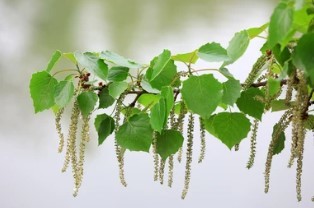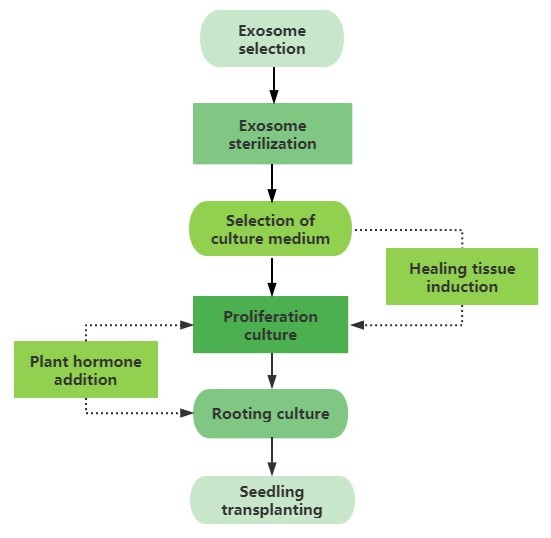Populus Plant Tissue Culture
 A flowering Populus plant
A flowering Populus plant
Such economically valuable plants can be propagated
rapidly and in large numbers through our plant tissue
culture technology to aid in forestry production,
landscaping, and nursery work.
Populus belongs to the Salicaceae, commonly known as poplar, with about 100 species, most of which are salt-tolerant and widely distributed in Europe, Asia, and North America. Populus plants are deciduous trees with usually straight trunks and often grayish-white.
Populus plants are an essential part of the wood supply. The leaves can be used as fodder, and the flowers and bark can be used as medicine. It is a tree species for building shelter, soil, and water conservation forests or urban greening.
Tissue culture service
Populus plant has the advantages of wide distribution, strong adaptability, rapid growth, strong regeneration ability, good woodiness, and relatively small genome, and it is a crucial afforestation tree species. As an important part of modern biotechnology, tissue culture technology is widely used in Populus plants.
Lifeasible has vibrant experience in the field of Populus plant tissue culture and has established a complete in vitro tissue culture system. Our Populus plant tissue culture service can help you propagate many high-quality seedlings in a short time, providing an effective way for the genetic transformation and industrial reproduction of poplar.
In Populus tissue culture, you can choose any leaves, stem segments, roots, axillary buds, terminal buds, ovules, protoplasts, etc., as exosome materials and send them to us so that we can carry out your entrusted tissue culture project.
- Selection of culture medium and culture conditions
Selection of suitable media is a prerequisite for successful tissue culture. Poplar tissue culture often uses media in MS, 1/2 MS, 1/4 MS, WPM, and 1/2 DKW. We will select the medium for your tissue culture project that will contribute to rooting speed, rooting rate, and adventitious shoot germination rate.
Culture conditions such as carbohydrates, light, and temperature have an essential impact on establishing poplar regeneration systems. We will determine the best culture conditions for you through multiple controlled trials.
- Selection of plant growth regulators
The commonly used growth regulators in poplar tissue culture media include 2,4-D, NAA, IAA, IBA, etc., and cytokinins include 6-BA, KT, and TDZ.
During primary culture, proliferation culture, and rooting culture, different types and concentrations of plant growth regulators need to be added. This is essential for the growth of different tissues and organs of plants. We have developed a standard process for adding plant growth regulators based on our previous successful experience.

The ability of different explants to produce healing tissue varies. We will suggest the best explant for you in terms of the plant site, physiological status, and developmental age of the explant.
Different exosome materials have different sensitivity to disinfectants. Therefore, we will select the appropriate disinfectant and disinfection time based on the size of the explant, the collection site, and the developmental age.
Browning of explants is a common problem during Populus plant tissue culture. But you don't need to worry; we will prevent the browning of materials from various aspects, such as the selection of explants, disinfection, and culture medium.
If you are interested in our services, please feel free to contact us for more information or to discuss in detail.
You want to sign a confidentiality agreement.
You have a specific plant species for your experimental needs.
You have a reliable and relevant cooperation project to discuss.
You are very interested in our project or have any questions.
You need an updated and detailed quotation.
For research or industrial use.

 A flowering Populus plant
A flowering Populus plant

